
Top 7 Best Logistics Management Software Solutions – 2024
Logistics Management Software has become crucial for businesses to manage various aspects of their supply chain operations.
Logistics handling was always troublesome; without technology, the industry would have been impacted further. Whether it was to track the inventory stock or plan routes, all this was managed via pen and paper! Even thinking about this gives us goosebumps!
The use of the right Logistics Management Solutions will help automate logistics operations. This reduces the manual hours spent on route planning and inventory tracking. It helps streamline operations, close the black boxes, and boost customer satisfaction.
If you are on the lookout for the best Logistics Management Software solutions for 2024 and beyond, you have come to the right place. We showcase the different platforms that might be worth your time and operation.
Table of Content
The Impact of Logistics Management Software Solutions
What is Logistics Management Software?
Top 7 Logistics Management Software for 2024
Frequently Asked Questions
Conclusion
The Impact of Logistics Management Software Solutions
The logistics automation market size surpassed $50 billion in 2022. It’s expected to grow at 12% CAGR from 2023- 2032.
The North American logistics automation market dominated the global market with a 40% share.
Demand for Logistics Management Software has seen a significant rise in the food and beverage, healthcare, pharmaceuticals, and manufacturing industries.
Most businesses turn to Logistics Management Software to optimize last-mile deliveries, handle returns, real-time tracking, and enhance operations with analytics.
What is Logistics Management Software?
Logistics Management Software also referred to as a Logistics Management System helps streamline and optimize different aspects of supply chain and distribution operations.
It offers a comprehensive package to manage logistics operations from planning routes to handling returns.
Investing in Logistics Software Solutions helps improve profit margins, ensure on-time deliveries, optimize operations, and make informed decisions.
In this article, we’ve made a list of the best Logistics Management Software used in the industry. This will help you in making more informed decisions for choosing the right fit for your business.
Top 7 Logistics Management Software for 2024
1. LogiNext Mile
LogiNext is cloud-based Logistics Management Software that helps you automate entire logistics operations. Having a presence in over 200 countries, we have revolutionized how logistics automation works in first-mile, middle-mile, and last-mile deliveries.
LogiNext offers one of the top Logistics Management Software in 2024 with multiple unique features resulting in customer satisfaction and recurring orders.
LogiNext Solutions is one of the top players when it comes to Logistics Software Solutions. We cater to industries such as Retail and eCommerce, CEP, CPG, F&B, Transportation and Logistics, and similar use cases.
Our top clientele includes UPS, AmRest, McDonald’s, Malta Post, Chilexpress, Temple & Webster, Siam Makro, Lotuss, Movin, and more.
Some of the key features that help remove logistics hurdles include:
Live Screen: It will help you with complete transparency over day-to-day operations. You are ensured to take immediate action on your orders, trips, and delivery associates via a single screen!
Control Tower: Give your upper management a bird-eye view with live status on Order Details, Resource Availability, and Delivery Associated Delivery.
Route Planning and Optimization: Make plans based on fleet usage, time and distance, balanced allocation, and sequential planning.
Order Management: Control warehouse inscan and outscan process, order reattempts, and more.
Fleet Management: Get complete control of your fleet operations and configure delivery associates based on skillsets.
Payments: Give your drivers complete visibility of their earnings with a dedicated section for the earnings, keeping them motivated and satisfied.
Integration Marketplace: Easily integrate with third-party vendors for seamless operations. These include Email integration, SMS integration, WhatsApp integration, WMS, ERP, MAP, Payments, Single-Sign-On, IVR, and Carrier Integration.
Data Analytics: Get all your order-related reports, delivery associate reports, trip summaries, payments, customer experience, and custom reports!
Security: LogiNext’s web app and mobile app follow the highest security standards. We have the highest security standards followed by Microsoft Azure and Amazon Web Services.
Customer Experience: With LogiNext’s customer experience module set up real-time alerts, notifications, branding profiles, custom emails, consent forms, and more.
Deployment: Cloud, SaaS, Web-base.
Pros:
– Live Screen Dashboard will give you real-time visibility of what’s happening on the ground.
– Software for logistics management offers the best route planning and optimization with good API integration.
– Get easy scalability as operations grow.
– Assured availability with 99.99% uptime.
– White labeling of solutions.
– A large integration marketplace is available for integration.
– Intelligent scheduling and auto-order allocation for faster deliveries.
– Get insights for driver payments and payouts, ePoD, eSign, and driver behavior analysis.
– Driver App, Shipper Portal, Dispatcher Web App, and Mile Mobile App are some of the services available.
Cons:
– Pricing can be on the higher side for small businesses.
2. Tookan
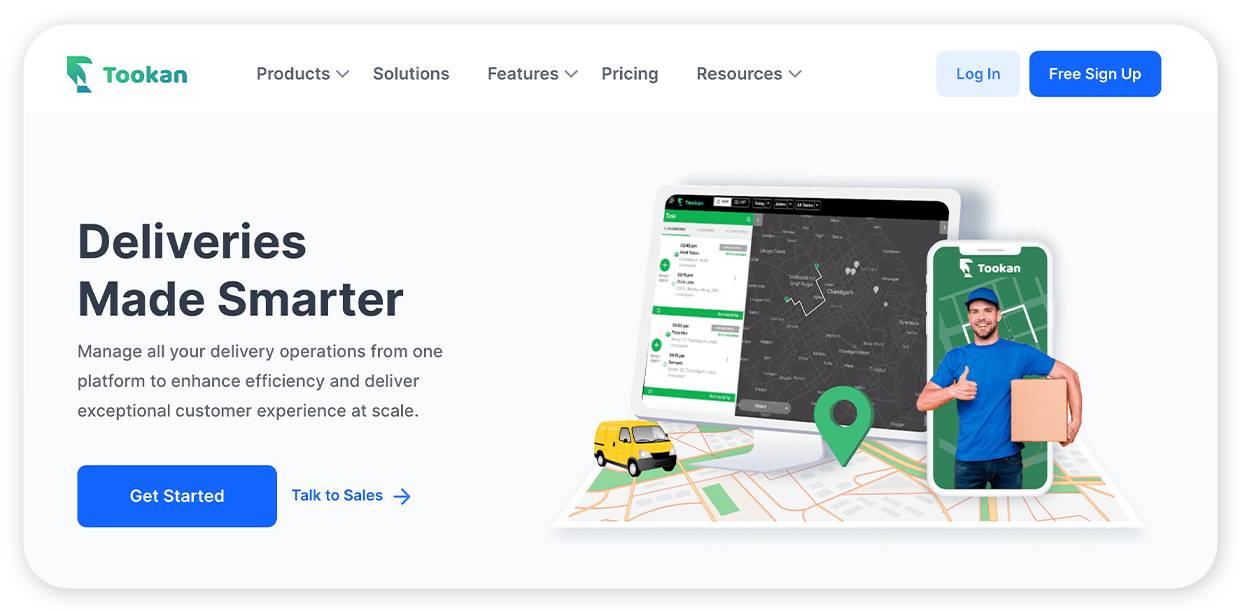
Tookan offers customers a cloud-based delivery management solution. It helps with delivery fleet management and automates dispatch operations. Makes use of geofencing to assign orders and track delivery associate’s location. Order scheduling, barcode scanning, booking management, behavior monitoring, and reporting are its key features.
Deployment: Cloud, SaaS, Web-base.
Pros:
– Pricing is suitable for all business sizes.
– White labeling is available.
Cons:
– It can be difficult for designers to understand the customization.
3. NetSuite
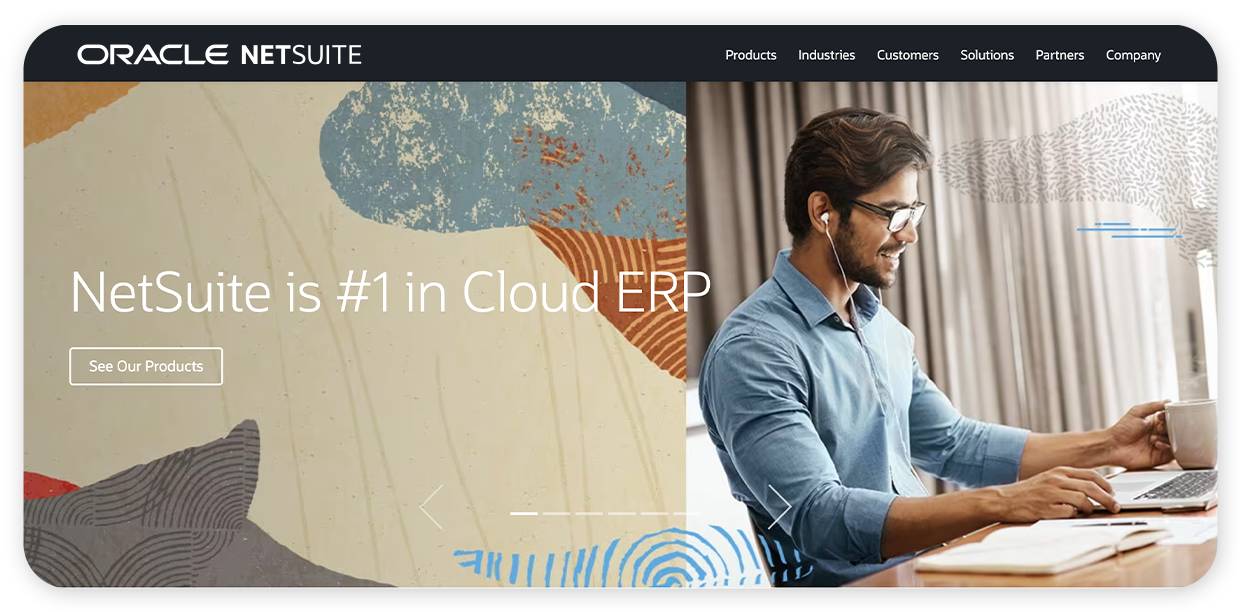
Oracle NetSuite is a cloud-based inventory management software. It offers real-time inventory visibility, advanced order fulfillment for distributors, and complete Procure-to-Pay Purchasing. It comes with integration for ERP, Financial, HR, PSA, CRM and supply chain management.
Deployment: Cloud, SaaS, Web-base.
Pros:
– Best inventory management software tool.
– The storage of company information in one place for easy access.
Cons:
– High pricing.
4. Fishbowl
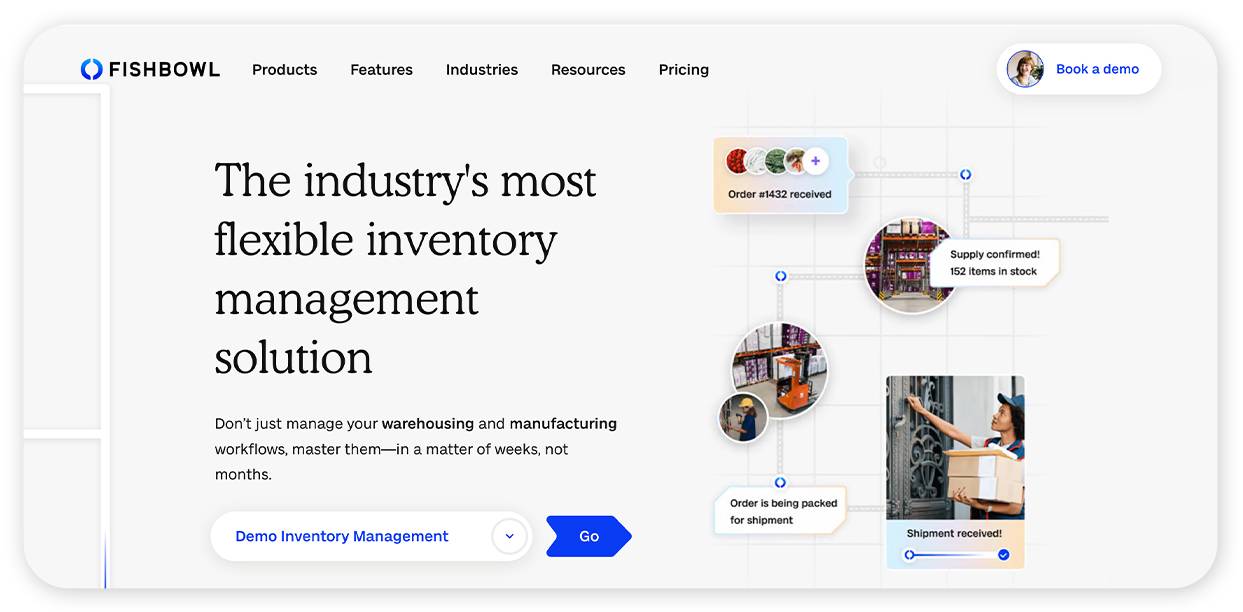
Fishbowl offers manufacturing and warehouse inventory management software. It’s highly helpful for small or midsize businesses to transform inventory management and scale operations. Logistics software solutions seamlessly integrates with some of the most popular business solutions such as QuickBooks, Amazon, Adobe, Shopify, Salesforce, and more.
Deployment: Cloud, SaaS, Web-base, On-Premise Windows, On-Premise Linux.
Pros:
Ease of use and simple to understand.
Cons:
Lots of complex customization makes the product difficult to get accustomed to.
5. Route4Me
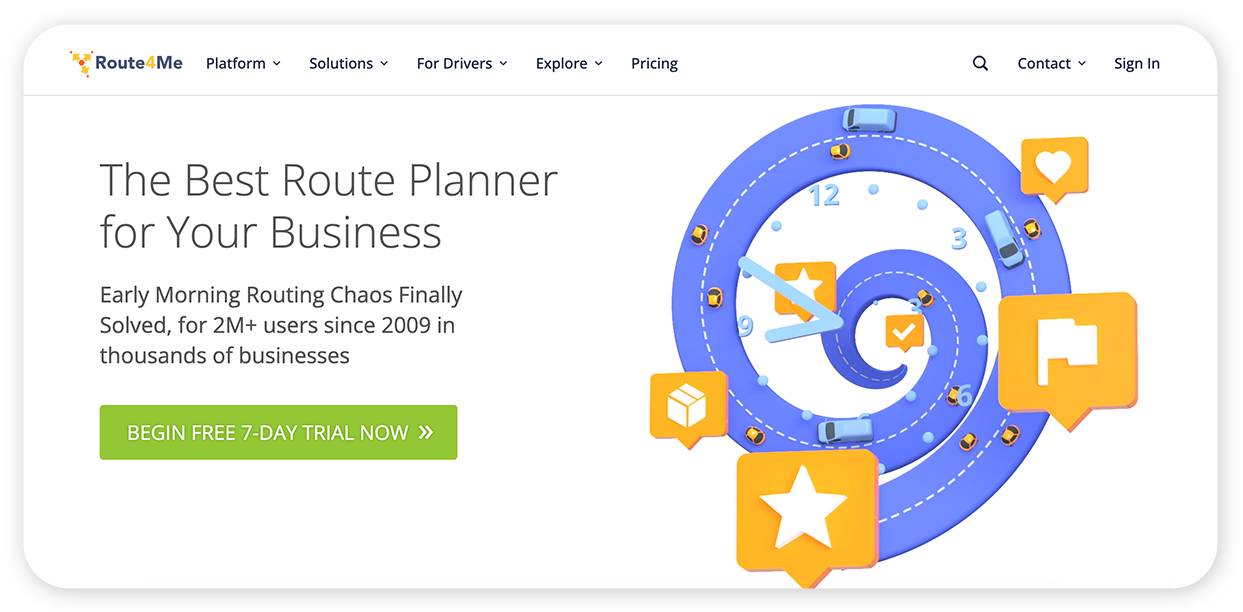
Route4Me is a cloud-based fleet management solution. They have been primarily designed to meet the needs of small, midsize, and large businesses. Its software for logistics management main features include route planning and routing guides. Routes can be round trip, round trip with set time restrictions, or designed to end anywhere.
Deployment: Cloud, SaaS, Web-base.
Pros:
– Ease of use and integrations.
Cons:
– Imperfect Google Map integration leads to improper routing.
6. OptimoRoute
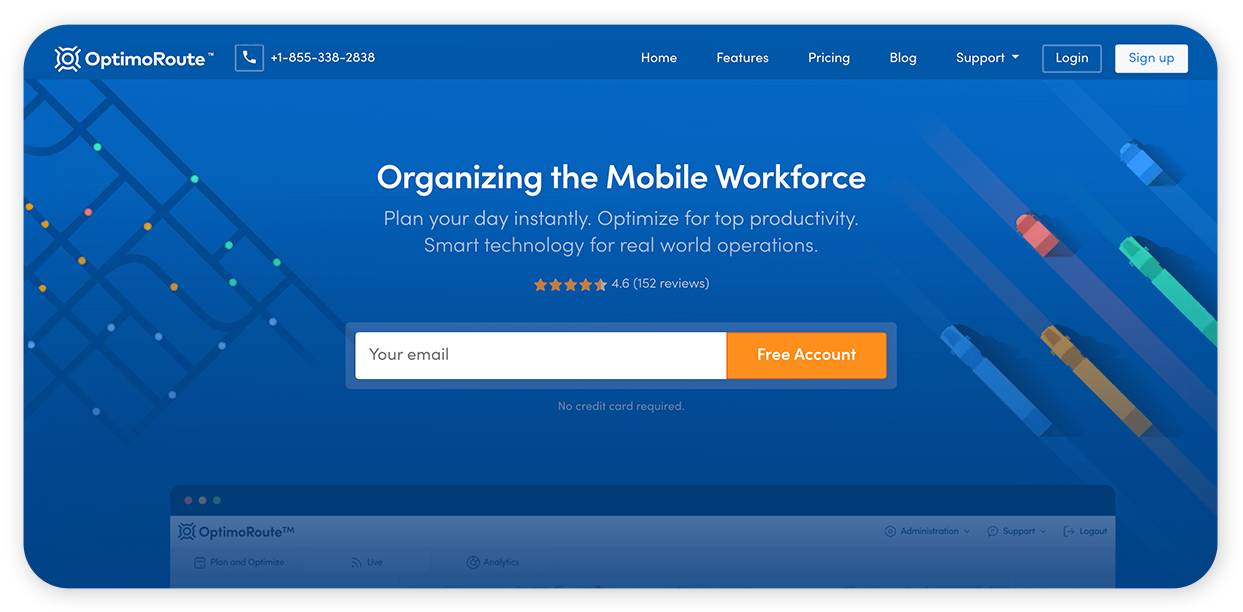
OptimoRoute is a field service and delivery management platform. Its main focus is to plan and optimize routes. With efficient routes, businesses can realize significant time savings and increase the capacity of existing teams.
Deployment: Cloud, SaaS, Web-base.
Pros:
– Ease of use and functionality.
– Clean and simple user interface.
Cons:
– If delivery fails, proper messaging is unavailable.
– Unable to handle multiple time zones from one account.
7. Upper:
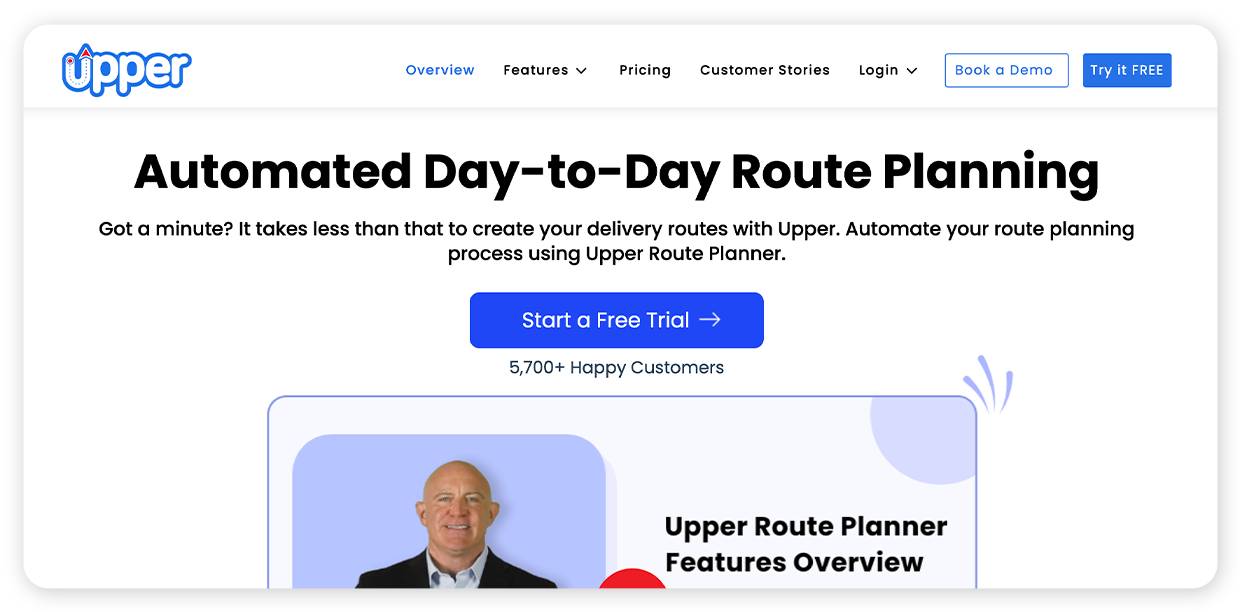
Upper is a route planning software to help businesses streamline their operations. Its software for logistics management helps plan, optimize, and dispatch orders to multiple locations using the shortest routes. Some of the top industries it serves include- food delivery, pharmacies, healthcare, eCommerce, and waste management.
Deployment: Cloud, SaaS, Web-base.
Pros:
– Easy Excel uploads to make route planning easier.
– Ease of use, inexpensive cost.
Cons:
– The Driver App needs more refinement.
Top 6 FAQs on Logistics Management Software
1. What is the process for integrating Logistics Management Software with existing ERP or CRM systems?
Integrating Logistics Management Software helps businesses optimize their logistics operations. The process involves finding the right software that can help meet your business needs.
– Collaborate with the IT team to ensure smooth integration.
– Define how data will be exchanged between systems (APIs, Excel, Manual).
– Test the data with multiple use cases to ensure accuracy.
– Prioritize data security and real-time monitoring.
– Train your team on the integrated system and roll out the integration with a scope of future scalability.
– Integrating your ERP or CRM system with LogiNext Mile will help improve efficiency and data accuracy, making the future brighter.
2. What security measures are in place to protect sensitive logistics data within Logistics Management Software?
Any Logistics Management Software provider should employ the best security measures to safeguard your data. These include data encryption, role-based access control, security audits, and compliance with the latest security standards. LogiNext Mile offers VAPT compliance along with GDPR and PIPL.
3. Why should my company consider implementing Logistics Management Software?
Implementing Logistics Management Software will help elevate your business success to newer heights. It helps streamline operations, reduce operational costs, enhance customer satisfaction, and offer real-time insights. With logistics software solutions, you can be assured of unlocking your business’s complete potential and boosting your revenue!
4. How to pick the best Logistics Management Software for your organization?
Selecting the right Logistics Management Software is crucial to finding the best way to optimize your organization’s supply chain and distribution. Some of the key pointers that can help your business make informed decisions include-
– Identify the specific requirements you need for your operations.
– Ensure there is seamless integration with the existing system.
– What type of support services are offered during and after onboarding?
– Will the software offer customization as per business requirements?
– The cost of purchase and return on investment.
5. What are the Benefits of Using Logistics Management Software?
Improved Efficiency: Automates tasks such as route planning, inventory management, and order tracking, reducing manual errors and speeding up processes.
Cost Reduction: Optimizes routes and load planning, reducing fuel consumption and transportation costs. It also helps in minimizing warehousing costs through better inventory management.
Real-Time Visibility: Provides real-time tracking of shipments and inventory, enabling better decision-making and proactive problem-solving.
Enhanced Customer Service: Improves delivery accuracy and timeliness, leading to higher customer satisfaction. It can also offer features like real-time order status updates and automated notifications.
Data Analytics: Offers insights through data analytics, helping businesses identify trends, forecast demand, and make informed decisions.
Scalability: Easily scalable to accommodate business growth, allowing companies to expand their operations without significant system changes.
Compliance and Security: Helps ensure compliance with industry regulations and standards, and provides secure data management.
Collaboration and Communication: Facilitates better communication and collaboration among different departments, suppliers, and customers.
6. Challenges of implementing logistics management software?
– High Initial Costs
– Complex Integration
– Data Migration
– Change Management
– Customization and Flexibility
Conclusion
Make a real difference in your business by choosing the most appropriate Logistics Management Software solution from the list mentioned above. You can be assured of seeing significant growth by picking any of them as all of these are the best ones in the market. However, you can also choose to have a free trial and understand the product before purchasing it.
Elevate your logistics game with LogiNext Mile!
190






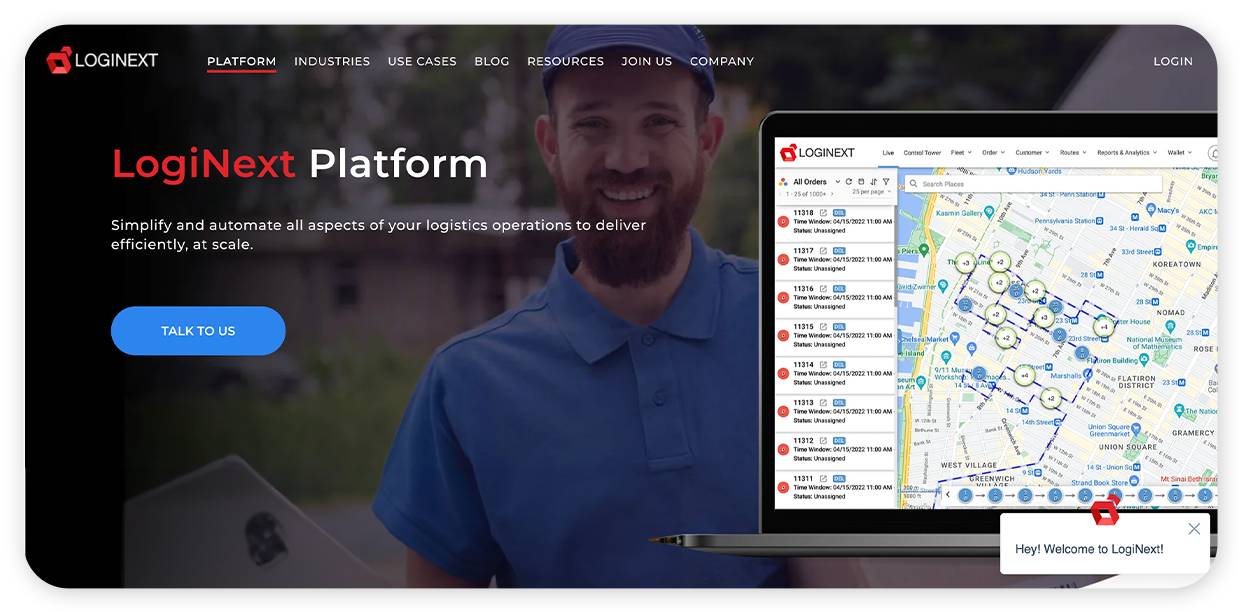
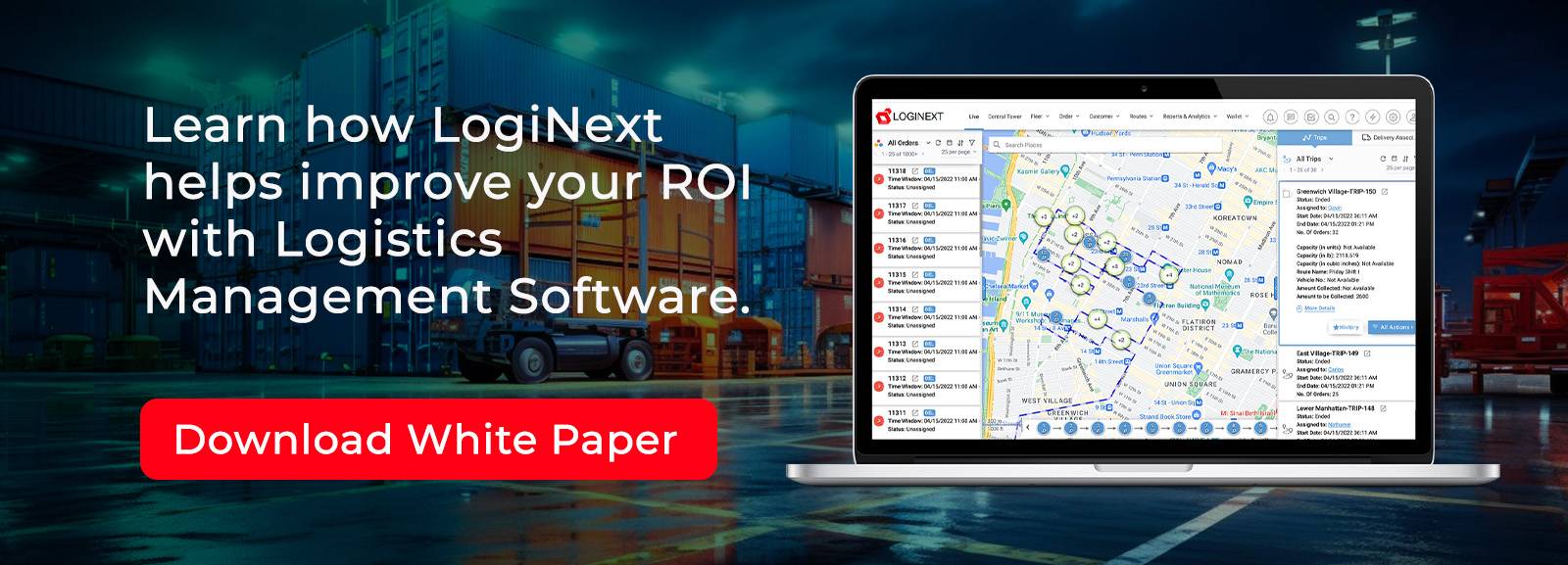

@LogiNext